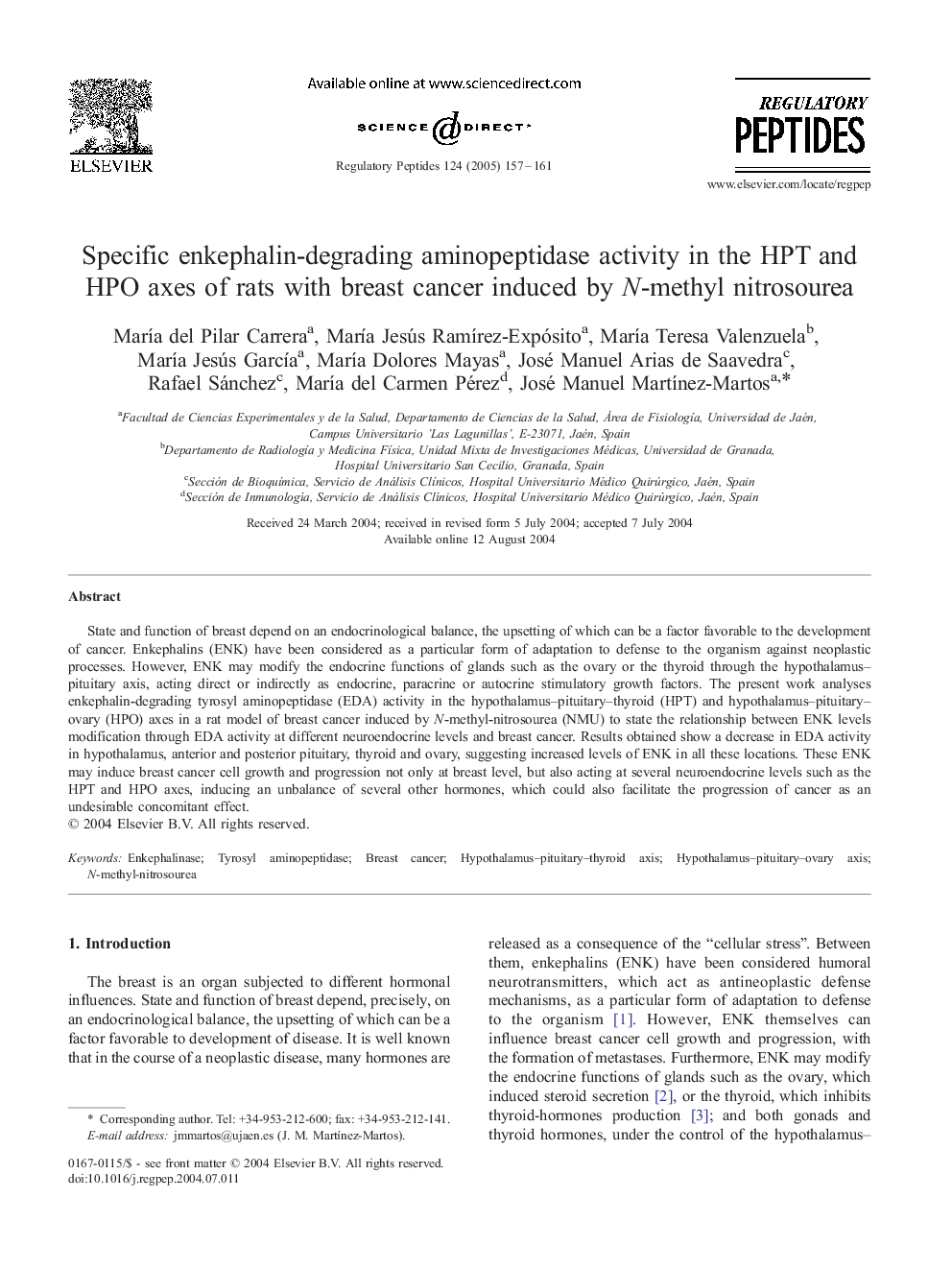| Article ID | Journal | Published Year | Pages | File Type |
|---|---|---|---|---|
| 9894544 | Regulatory Peptides | 2005 | 5 Pages |
Abstract
State and function of breast depend on an endocrinological balance, the upsetting of which can be a factor favorable to the development of cancer. Enkephalins (ENK) have been considered as a particular form of adaptation to defense to the organism against neoplastic processes. However, ENK may modify the endocrine functions of glands such as the ovary or the thyroid through the hypothalamus-pituitary axis, acting direct or indirectly as endocrine, paracrine or autocrine stimulatory growth factors. The present work analyses enkephalin-degrading tyrosyl aminopeptidase (EDA) activity in the hypothalamus-pituitary-thyroid (HPT) and hypothalamus-pituitary-ovary (HPO) axes in a rat model of breast cancer induced by N-methyl-nitrosourea (NMU) to state the relationship between ENK levels modification through EDA activity at different neuroendocrine levels and breast cancer. Results obtained show a decrease in EDA activity in hypothalamus, anterior and posterior pituitary, thyroid and ovary, suggesting increased levels of ENK in all these locations. These ENK may induce breast cancer cell growth and progression not only at breast level, but also acting at several neuroendocrine levels such as the HPT and HPO axes, inducing an unbalance of several other hormones, which could also facilitate the progression of cancer as an undesirable concomitant effect.
Related Topics
Life Sciences
Biochemistry, Genetics and Molecular Biology
Biochemistry
Authors
MarÃa del Pilar Carrera, MarÃa Jesús RamÃrez-Expósito, MarÃa Teresa Valenzuela, MarÃa Jesús GarcÃa, MarÃa Dolores Mayas, José Manuel Arias de Saavedra, Rafael Sánchez, MarÃa del Carmen Pérez, José Manuel MartÃnez-Martos,
